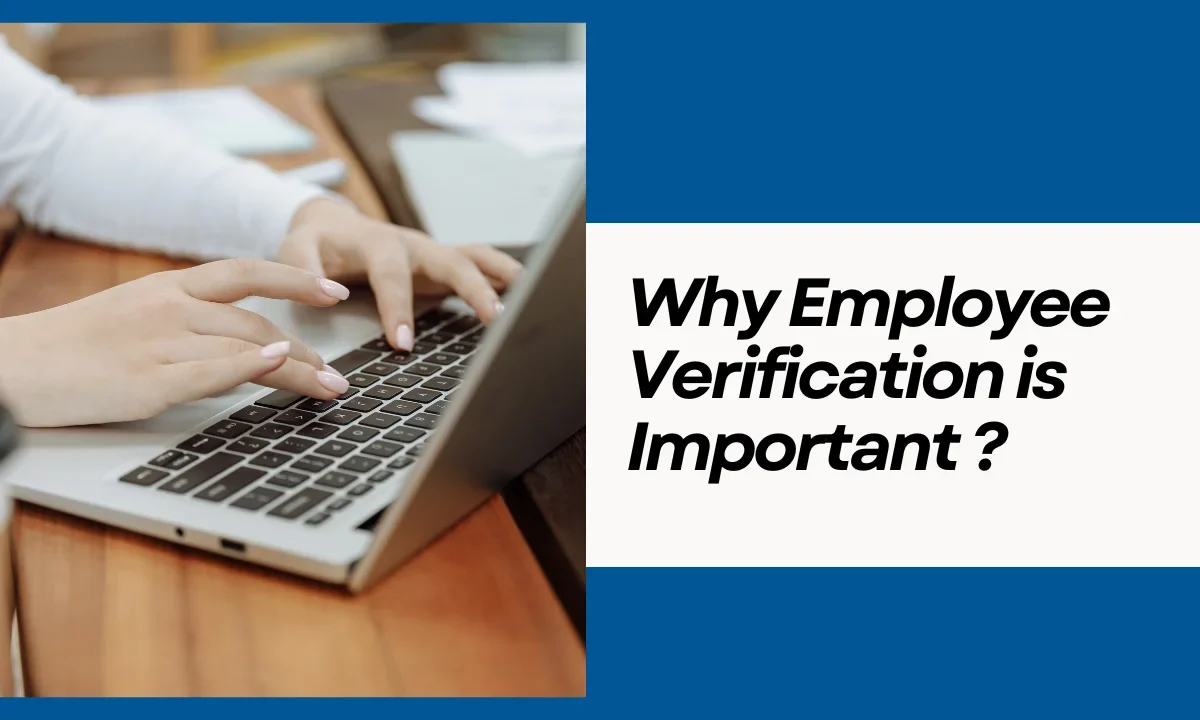
Introduction:
In today’s competitive business world, hiring the right employees is essential for growth, productivity, and security. One of the most important steps in the hiring process is employee verification. Whether you’re a small startup or a large corporation, verifying your employees’ backgrounds and qualifications is a crucial step that cannot be overlooked. In this blog, we will discuss why employee verification is important and how it contributes to building a strong, trustworthy workforce.
1. Ensures a Safe Work Environment
Employee verification helps create a safer work environment by confirming that your employees have a clean criminal record. Conducting background checks can reveal any past criminal activities, such as fraud, theft, or violence, ensuring that you don’t hire individuals who might pose a risk to your team or the business. Protecting your workplace from potential harm is a key responsibility that verification helps fulfill.
2. Protects Company Reputation
A company’s reputation is one of its most valuable assets. Hiring individuals with questionable backgrounds or unverified credentials can harm your business’s reputation, especially if issues arise that were avoidable through proper verification. By ensuring that employees are properly vetted, companies maintain their integrity, avoid scandals, and protect their public image.
3. Prevents Fraud and Theft
Employee verification is crucial in preventing internal fraud and theft. It is not uncommon for dishonest individuals to falsify information on their resumes or applications. Without proper checks, you may unknowingly hire someone with a history of financial misconduct. Verifying work history, criminal records, and qualifications ensures you’re hiring individuals who are trustworthy, reducing the likelihood of internal theft or financial loss.
4. Compliance with Laws and Regulations
Certain industries are subject to specific legal requirements regarding employee verification. For example, healthcare, finance, and education industries may require thorough background checks to ensure that employees comply with industry regulations. Failing to conduct proper verifications can lead to legal repercussions, fines, and even lawsuits. Ensuring compliance with these laws helps avoid costly legal issues.
5. Improves Hiring Accuracy
Employee verification helps to ensure that the candidate you are hiring has the skills, experience, and qualifications they claim. Verifying educational qualifications, employment history, and professional certifications ensures that the person you hire is genuinely qualified for the role. This improves the chances of making the right hiring decision, leading to greater employee performance and job satisfaction.
6. Reduces Turnover and Recruitment Costs
When employees are hired based on accurate information and fit well within the company culture, they are more likely to remain with the organization long-term. Employee verification plays a key role in ensuring this match, reducing turnover rates and saving on recruitment and training costs in the long run.
7. Protects Customers and Clients
Employees represent your business to customers and clients. If an employee engages in unethical or illegal activities, it can tarnish your relationship with clients and damage business partnerships. Verifying your employees ensures you have trustworthy individuals representing your brand, which helps protect client relationships and maintains business continuity.
8. Enhances Workplace Morale
Employees want to work in an environment where trust is mutual. When an organization verifies its employees, it shows commitment to building a secure and transparent work environment. This fosters trust between employers and employees, boosting workplace morale and productivity. Employees feel more secure knowing that they are part of a company that prioritizes integrity.
9. Reduces Risk of Lawsuits
Not verifying employees thoroughly can result in lawsuits if an employee causes harm or behaves unethically. Employers may be held responsible for neglecting proper checks, especially if an employee’s actions cause damage to third parties or the business itself. Employee verification acts as a safeguard to reduce the risk of costly lawsuits.
10. Enhances Data Security
In today’s digital age, data security is more important than ever. Many employees have access to sensitive business data, such as client information, financial records, and proprietary technology. Verifying employees helps ensure that only individuals with a proven trustworthy background have access to critical data, preventing security breaches.
